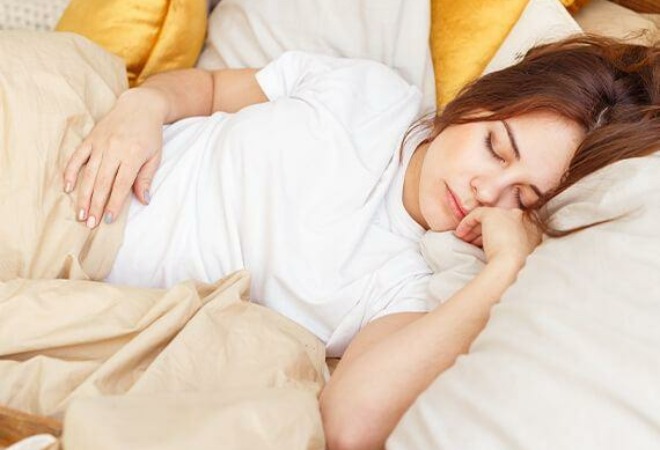SLEEP ESSENTIALS
Sleep is essential for early childhood development and directly impacts on mental and physical development. It is therefore important to understand your child’s sleep and instil good sleep habits. Circadian rhythms – or the sleep-wake cycle – are regulated by light and dark and they take time to develop – that’s why newborns have irregular sleep schedules. The rhythms begin to develop at about six weeks and by three to six months most infants have developed a regular sleep-wake cycle.
SLEEP CYCLE
- Non-Rapid Eye Movement (NREM) or ‘quiet’ sleep – blood supply to the muscles is increased, energy is restored, tissue growth and repair occur and important hormones are released for growth and development.
- Rapid Eye Movement (REM) or ‘active’ sleep – brains are active and dreaming occurs, bodies become immobile, breathing and heart rates are irregular.
Babies spend half their time in each of these states and the sleep cycle encompasses about 50 minutes. By about six months, REM sleep comprises about a third of sleep. By the time children reach preschool age, the sleep cycle is about every 90 minutes.
NEWBORNS AND SLEEP
For newborns, sleep during the early months occurs around the clock and the sleep-wake cycle interacts with the need to be fed, changed and nurtured. Newborns sleep between 10.5 and 18 hours a day with periods of one to three hours spent awake. Postnatal adviser Sharlene Poole from Little Miracles is known as New Zealand’s ‘baby whisperer’ and she says sleep is vital in assisting babies’ mental and physical development. “But I also find they are much happier babies and cope with the immense amount of stimulation and growth much better when they sleep well, so their emotional stability is better,” Sharlene says. “Without adequate sleep, mothers may not be able to cope with the consistency of parenting and developmental changes, such as teething. But it can also make mothers feel very vulnerable and less confident. In turn this can affect some babies who pick up on their mothers’ emotions, making them more unsettled than necessary”.
INFANTS AND SLEEP
By six months, night-time feedings are usually a thing of the past and many infants sleep through the night. Infants typically sleep between nine and twelve hours at night and take thirty-minute to two-hour naps, one to four times a day.
When infants are put to bed drowsy but not asleep, they are more likely to become ‘self-soothers’ enabling them to fall asleep independently at bedtime and put themselves back to sleep during the night. Those who become accustomed to parental help at bedtime often become ‘signallers’ and cry for mum to help them return to sleep.
Sharlene Poole advises mothers to look at what they are doing in the day. “This often affects the way babies sleep at night – they may have too little or too much sleep in the day. So looking at routine is important. Learn an effective settling technique that teaches a baby that bed is a happy place to be and then be consistent with your approach for three to five days before seeking advice from a professional. Every baby can learn to sleep well.”
SLEEP TIPS
- Develop regular daytime and bedtime schedules for baby
- Create a consistent and enjoyable bedtime routine
- Establish a regular ‘sleep-friendly’ environment
- Encourage baby to fall asleep independently and to become a ‘self-soother’
SCHOOL CHILDREN
School age children need ten to eleven hours of sleep. Most school children have growing demands on their time – with school, homework, sports and more. They also become more introduced to technology, with TV, computers, the internet – amongst many other interests.
This can all add up to sleep difficulties. For example, watching TV before bed has been associated with bedtime resistance, difficulty falling asleep, anxiety around sleep and sleeping fewer hours.
Children who spend more time in extra-curricular activities at the expense of sleep do not always perform as they should. Lack of sleep compromises many of the skills that make for academic success: attention, organisation, creative thinking and efficiency.
SLEEP TIPS
- Teach school age children about healthy sleep habits
- Continue to emphasise the need for a regular and consistent sleep schedule and bedtime routine
- Make your child’s bedroom conducive to sleep – comfortable temperature, dark and quiet
- Remove TV and computers from the bedroom
- Avoid caffeine in all forms, e.g. caffeine-heavy soft drinks
SLEEP TIPS
Sleep is essential to a child’s health and growth, promoting alertness, memory and performance. Children who get enough sleep are more likely to function better and are less prone to behavioural problems and moodiness. Make bedtime the same time every night. Bedtime should be a positive and relaxing experience without the TV or computer.
Encourage your child to fall asleep on his or her own. Have your child form positive associations with sleeping. A child should not need a parent to help fall asleep. The child who falls asleep on his or her own is better able to return to sleep during night time awakenings and sleep through the night.
Discourage night time awakenings. Going in to your child’s room every time he or she wakes only strengthens your child’s connection between you and sleep. Even babies who are held and cuddled when they wake in the middle of the night soon learn to expect this and do not learn to go back to sleep on their own.
Only when the child is sick, has been injured or clearly requires your assistance should you enter your child’s room.
Help your child develop a nightly routine. A bedtime ritual makes it easier for your child to relax, fall asleep and sleep through the night, for example:
- Provide a light snack
- Have a bath
- Put on pyjamas
- Brush teeth
- Read a story
- Make sure the room is quiet and at a comfortable temperature
- Put your child to bed
- Say good night and leave
WHO CAN HELP?
If babies or youngsters have ongoing sleep problems, Sharlene Poole says help is readily available, but it’s important to get the right sort of help. “There are many sleep consultants and Plunket offers advice as well. What is important is to find someone who is on the same page as you and someone who looks at your individual situation and your baby’s personality, so the advice is more specific rather than standard.”
Find the perfect bed for your child
Simply try our Bed Selector tool to find the best bed for your child.




